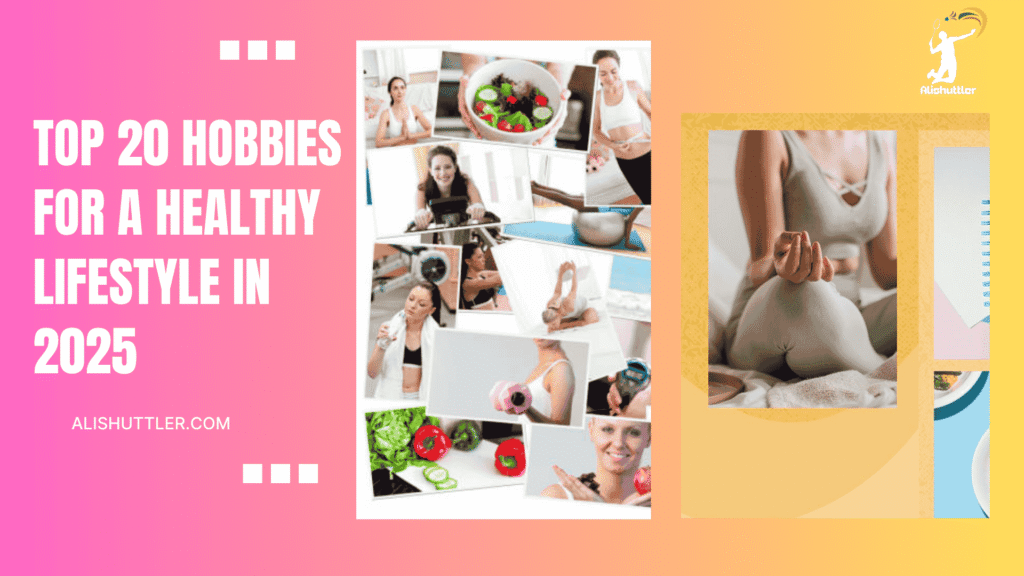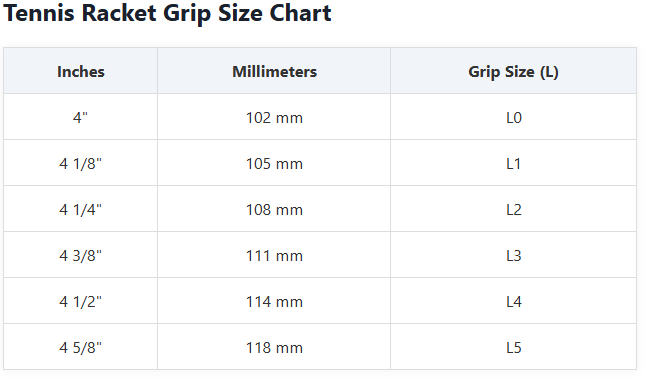Hobbies for a healthy life that help boost your physical and mental health. Stuff like walking, cycling, gardening or learning to cook healthy food helps create strong habits.
A lot of folks find that creative hobbies such as painting or playing music aid in stress relief. They slot into hectic schedules and provide concrete means to remain active, think fresh, and feel great.
The following subsections illustrate initiating and maintaining these hobbies.
The Hobby Effect
Hobbies are powerful in health, physical and mental. Frequent downtime can reduce blood pressure, alleviate stress and contribute to a leaner BMI. A number of creative, active and social hobbies demonstrate genuine increases for well-being, according to big studies from multiple countries. Hobbyists tend to be happier, less anxious and report a better quality of life.

Even brief stints—ten minutes outdoors or a couple of hours a week sketching—can have a huge impact.
1. Mental Clarity
Mindful hobbies like gardening, painting or knitting will assist your focus and mental discipline. Creative work — be it writing, drawing, or solving puzzles — forces the brain to work in fresh ways, which helps keep thinking crisp and agile.
I think most of us would agree that completing a project — even a very modest one — is satisfying, if only to clear the mind of the clutter that fills everyday life. Relaxation is essential—yoga, tai chi, or even just breathing exercises incorporated into hobbies can reduce stress and instill a feeling of calm in your mind.
In the long run, these habits can decrease worry and assist with memorizing and learning.
2. Physical Vitality
Physical hobbies such as hiking, cycling, or swimming develop muscle and improve cardiovascular health. Even a quick walk provides an energizing boost of mood, and outdoor hobbies allow you to absorb beneficial fresh air, which can aid the immune system.
Dancing, team sports, and even gardening are good for the body — keeping joints loose and blood moving. Doing these things frequently is important. Individuals who habitually carve out time for physical hobbies, week after week, stave off fatigue and defend their health as they age.
Other studies find that people with consistent hobbies are healthier and live longer.
3. Emotional Balance
Hobbies can help you get a grip on stress. Whether it’s painting or playing music, these activities allow individuals to express emotions in a controlled manner, resulting in a more peaceful state of mind. Group activities help as well.
When you have a hobby in common, it helps to build support — and that’s the secret to managing life’s rollercoaster of stress and satisfaction. A deficit of social hobbies damages health.
Social isolation is as bad, studies say, as smoking 15 cigarettes a day! A few days of creative action can provide genuine lift.
4. Social Connection
Attending clubs, groups, or classes allows individuals to connect with others with similar interests. Joining a team sport or volunteering makes it easy to connect.
Participating in these events combats loneliness and contributes to your sense of purpose. Attending hobby fairs or workshops grows your social circle. Incremental things, like saying hi at a class, form connections.
5. Cognitive Boost
Learning chess, experimenting with new recipes, or grabbing a language keeps your mind lithe and spry. Puzzles, programming, or even DIY projects force you to think differently.
Hobbies that require planning and problem-solving keep your brain fit. The ones who continue learning new skills, even at an older age, reduce their risk of dementia. The more hobbies, the greater the brain boost.
Find Your Flow
Reaching flow in hobbies can have a significant impact on mental and physical wellness. Experience sampling studies reveal that when folks forget themselves in an activity, be it painting or board games, their mood improves, stress declines, and life satisfaction increases. Flow, for those who don’t recall Mihaly Csikszentmihalyi’s concept, is not restricted to one type of hobby—it can occur in reading or crafts, cooking or a brisk walk.
The secret is discovering what works for your lifestyle, personality, and ambitions.
Your Personality
Selecting hobbies that suit you begins by being brutally honest about what you enjoy, what you don’t enjoy, and how much energy you generally possess on a given day.
A creative type would relish something like sketching, music, or writing — each provides an expression of the self. As the calm seekers, they may flock to gardening, puzzles or knitting. If you’re someone who thrives on social interaction, group sports or dance classes can be fulfilling.
Every hobby can offer solace and genuineness if it comes easy and is fun.
Your Goals
Clear goals make hobbies meaningful. Having a modest goal — learning a song on guitar, jogging three times a week, or completing a book each month — maintains drive.
Others choose hobbies that complement larger health objectives, such as yoga for flexibility or chess for mental agility. Otherwise you’ll burn yourself out and stop having fun.
Recording what you complete — be it a painting or a recipe — tags advancement and motivates you to continue.
Your Lifestyle
Packed schedules can make it difficult to introduce new pursuits, so it pays to seek hobbies that match your rhythm. Even a brief daily walk, a fast round of board games, or fifteen minutes with a sketchbook can reset your mind and body.
Active hobbies, such as cycling or swimming, combine exercise with enjoyment and increase well-being through the release of endorphins. Key is balancing your hobbies with work, family and other commitments.
Some hobbies can be solitary — say, reading — while others, like cooking or hiking, can involve friends or family. This fluidity helps make it easier to commit to your hobbies for the long haul.
Experiment and Adjust
Experimenting with hobbies is a clever method to discover your bliss. Don’t hesitate to switch if one doesn’t feel right.
Flow originates in consistent, pleasurable practice — not in coercion.
Creative Pursuits
Creative pursuits allow you to try something new, develop skills, and express yourself in a constructive manner. These were activities that nourished the soul and helped control stress. They assist you in linking to others and provide pride.
Experimenting with various creative endeavors—be it visual arts, music, or literature—can assist in identifying what ignites passion and motivation. Here are some artistic hobbies and their benefits:
- Painting, drawing and sculpting keep your mind limber and provide a respite from everyday stresses. They provide tangible avenues to express emotion and allow others to witness the evolution.
- Writing, blogging, journaling — it all helps process thoughts and emotions. These can be private or shared activities, and they cultivate crisp thinking and improved writing.
- Making music, singing or learning an instrument hones memory and coordination. Spread music around or in groups creates social links.
- Photography and nail art provide creative outlets that combine visual talent with individuality. They provide tangible accomplishment and create outcomes you can both view and disseminate.
- Cooking and baking combine art and science, allowing individuals to experiment and connect with others. These hobbies are enjoyable and satisfying.
- Acting and improv puts people in new roles and lets them embrace change. They enhance your public speaking and collaboration abilities.
- Dancing and crafting employ motion and tactile sensation, which can elevate mood and assist with concentration.
Painting
Painting is a powerful form of emotional expression and stress relief. They use it to capture their ideas and emotions in color and form. This can be very soothing at the end of a hectic day and quiets the mind.
Let people experiment with watercolor, acrylic, or oil – whatever feels best. Something about mixing styles leaves space for innovation and development. Establishing a little nook with nice light can assist painting become a habit.
So we enroll in art workshops or local groups to connect and develop skills.
Writing
Journaling in general just helps folks reflect on their day and organize their emotions more. It’s a lightning habit that lifts spirits and adds focus.
Creative writing — like stories or poems — allows individuals to tell their own narrative. This outlet can be private or open to groups for critique. Frequent writing — even just a couple minutes a day — cultivates craft and makes it more enjoyable.
Music
Mastering an instrument is a long-term investment with huge returns. It hones concentration, aids recall, and allows for the expression of feelings with voice. A lot of people join choirs or bands to meet people, to be part of a team.
Music can even assist in relaxing. Creating mood-based playlists or experimenting with new genres keeps it interesting. It’s this blend of solo and group music that can sustain people for years.
Creative Projects
Attempting crafts or baking provides a tangible objective and a final result. Projects such as sculpting or nail art enhance problem-solving and make wonderful presents. These crafts allow individuals to publish their work and receive constructive critique.
Mini creative targets help keep skills evolving and bestow a fierce sense of accomplishment. Committing to a creative hobby can become this special experience of a lifetime of learning.
Active Lifestyles
As you know, there are many ways to stay active, and various lifestyle hobbies can contribute to constructing a fulfilling life. Be it leisurely walks, team games, or dancing, there’s something special about each for body and mind. Many of these healthy hobbies cultivate community by bringing people together through mutual interests and collaboration.
| Activity | Physical Benefits | Mental Benefits | Community Aspects |
|---|---|---|---|
| Walking | Boosts heart health, joint-friendly | Lifts mood, lowers stress | Easy to do with friends |
| Hiking | Strengthens muscles, aids balance | Nature reduces anxiety | Group hikes, clubs |
| Dance | Cardio, full-body workout | Boosts confidence, joy | Classes, social events |
| Team Sports | Increases fitness, coordination | Improves mood, sharpens focus | Teamwork, friendships |
| Yoga/Tai Chi | Flexibility, core strength | Mindfulness, stress relief | Group sessions, classes |
| Swimming | Low-impact, full-body exercise | Eases anxiety, relaxing | Pool groups, lessons |
Outdoor Adventures
Hiking or walking outdoors is among the easiest ways to get some activity. Even brief walks assist the non-exerciser. Hiking in parks or nature trails provides a great workout for your heart and muscles.
It’s great for clearing the mind, reducing stress and increasing energy. Nature sports, like kayaking and rock climbing, spice up the challenge. These types of activities get people outside their comfort zone, build endurance and develop new skills.
Camping trips provide an escape from the grind and the digital clutter, allowing individuals to decompress and center themselves.
Rhythmic Movement
Dance classes are a blast and a great way to get active and work out the entire body. They’re gentle on the joints and work your heart and lungs.
Yoga and tai chi incorporate a blend of movement and breathing exercises, making them excellent for fitness and tranquility. Rhythmic exercises, such as aerobics, can assist with balance and coordination.

These consistent physical hobbies can reduce stress, improve mood, and make individuals feel more connected in their bodies.
Team Sports
Being on a team is a fantastic way to encounter new individuals and remain physically active. Common goals and teamwork can forge great friendships and routine matches keep folks consistent with their exercise.
Group sports give you a sense of belonging and collaboration skills. The competition inherent in team sports can be a great motivator and push individuals to new fitness heights.
The Quiet Mind
It’s the moment when the chatter of your brain begins to slow down, the weight of worry drops away, and a sense of calm settles in. This concept is at the heart of much of both ancient and contemporary philosophy of living well. Writers such as Henry Howard Earl of Surrey and Martial noted that a quiet mind was the secret to a happy life, along with good friends and health.
Most philosophers, from Stoics to Buddhists, concur. A quiet mind allows us to pay attention in the here and now, not the there and then. It can result in clearer thinking, fresh ideas, and superior work. Quiet mind-building hobbies assist with equilibrium, development and serenity.
Mindful Observation
Mindfulness expands as you attend to little things around you, making it a fulfilling hobby. A stroll in the woods, for instance, is more than just physical activity; it allows you to observe the leaf colors, the wind, and the earth beneath your boots. These small acts help you return your mind to the present and swish away daily stress.
Photography serves as another excellent exercise for mindful observation and can be considered a creative hobby. By noticing the light, shapes, and patterns, you begin to appreciate the beauty of daily life. The process of framing a photo compels you to pause and observe, enriching your leisure time.
Easy mindful hacks—like taking a moment to observe a bird or hear the rain—keep you present and can be integrated into various lifestyle hobbies. Even a few still minutes with a teacup or just sitting on a bench can deepen your breath of stillness, helping you tune in to yourself and promoting overall health.
Reflective Journaling
Journaling sorts out thoughts and feelings, slicing through the mental static. A couple minutes a day, you can free write what’s on your mind or utilize a prompt to guide your thinking. Prompts such as ‘What gave me peace today?’ or ‘What do I need less of?’ tend to open up new consciousness.
Writing things down, day after day, can reveal patterns in your mood or habits. This simplifies noticing progress or identifying when direction shifting is necessary. Some discuss their decisions with a group or a trusted friend, which can inject support and fresh thinking.
Deliberate Crafting
Crafting, whether it’s knitting, drawing, or woodwork requires concentration but not strain. Hand go, mind still. This provides a screen and busy-mind break. Select crafts that allow you to mess around with color or form but don’t require precision.
Throwing pots, finger-painting, even rudimentary basket weaving can infuse quiet bliss. It aids to allocate a little time exclusively for this. Even 20 minutes helps. Experiment with some different crafts to find what clicks for you.
Mindfulness Practices
Short breathing exercises, guided meditation or yoga can help steady the mind. They’re simple to test out on your own or with a group. Apps and online videos provide free means to begin.
Any one of these hobbies—attention, journaling, crafting and mindfulness—can open the door to a quieter mind and a healthier life.
Overcome Hurdles
Sticking with lifestyle hobbies for a fulfilling life isn’t easy, as daily stress and life pressures often intervene. To maintain these healthy hobbies, a well-articulated plan can help you navigate the challenges of keeping your interests alive over the long term.
Time
Finding time is #1. Where does everyone find time for hobbies in a week crammed with work, kids, and other demands?
Reserve periods for interests, such as two weeknights or a weekend morning every week. Take these times as seriously as work meetings or family dinners. Break larger hobbies down into smaller, more manageable activities. For instance, rather than brute force a painting, doodle for 20 minutes.
Utilize easy time management hacks, like to-do lists or phone reminders, to juggle hobbies with chores and work. By prioritizing hobbies, you can keep stress in check and increase your overall well-being. Daily doses of enjoyment clear your mind of worry and provide your brain with some time off.
Motivation
It gets boring, you lose interest. To maintain motivation, establish specific, achievable objectives with your hobbies. This might be completing a book every month, or learning a new song on the guitar.
Celebrate the mini victories too – like completing a puzzle or jogging five minutes longer than last time. These incremental steps build confidence and assist you to adhere to new habits. Support is the name of the game.
Connect with others with your hobby, in person or online, and invite them to meet-ups or share progress. If you begin to lose steam, experiment with a new hobby or change up your schedule. Having more than one passion adds purpose and keeps passions fresh.
Resources
Certain hobbies require specific equipment or expertise. Create a shopping list of your requirement, be it paints, tennis rackets or yoga mat.
Search out nearby classes, web courses, or video tutorials and develop your skills. Reach out to others on forums or in hobby groups to exchange advice and share materials. Community centers and libraries may provide free or inexpensive tools, books or rooms.

Checklist
- Block out time for hobbies in your weekly schedule.
- Break hobbies into smaller steps.
- Set small goals and celebrate progress.
- Find or join groups for support.
- Gather the right tools and resources.
- Keep trying new activities.
Final Thoughts on Hobbies for a Healthy Life
Fresh hobbies provide serious jolts to mind and body. Painting or hiking or just breathing can make people less stressed and more energized. They work for all ages and fit many styles. A walk in the park, a quick sketch, a few minutes with a puzzle can move an entire day. No big plans or fancy gear required! Little, consistent steps matter.
Kinds of people can discover hobbies that seem right to them. For more balance and joy in your daily life, do one small thing to spark fun or calm. Tell your favorite hobby or tip to someone close. New habits generally begin with a small step.
Frequently Asked Questions
What are the health benefits of having hobbies?
Engaging in various lifestyle hobbies reduces daily stress, boosts mood, and promotes overall health while fostering physical fitness and mental stimulation.
How do I choose a hobby for a healthier lifestyle?
Begin with things you like or want to try. Seek various lifestyle hobbies that align with your health objectives and promote a fulfilling life.
Can creative hobbies improve mental health?
Indeed, engaging in creative hobbies such as painting or writing can significantly reduce daily stress, enhance emotional regulation, and liberate your self-expression.
Are active hobbies better for health than quiet ones?
Active hobbies and quiet hobbies are both good for your overall health. Engaging in physical activities enhances fitness, while more placid hobbies such as reading or meditation promote mental equilibrium and emotional regulation.
How much time should I spend on a hobby every week?
Even 30 minutes to an hour of engaging in healthy hobbies a few times a week will make a good difference in your life.
What if I struggle to stick with a new hobby?
Experiment with various lifestyle hobbies until you find one that feels fulfilling, allowing for personal growth and fun in your leisure time.
Can group hobbies help build social connections?
Yes, group hobbies promote social interaction and teamwork, fostering social bonds that can assist you in making new friends, enhancing emotional health and overall wellness.






